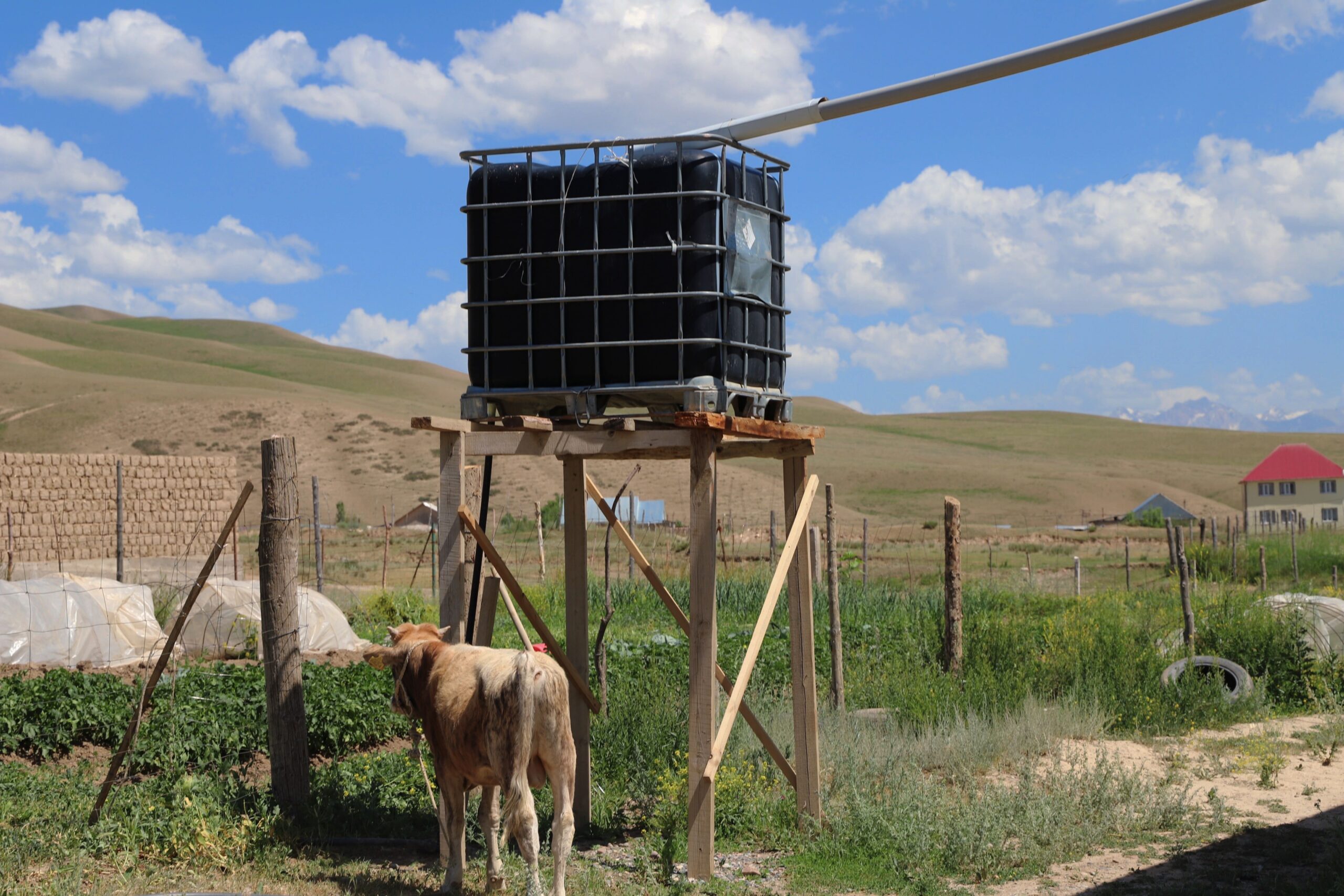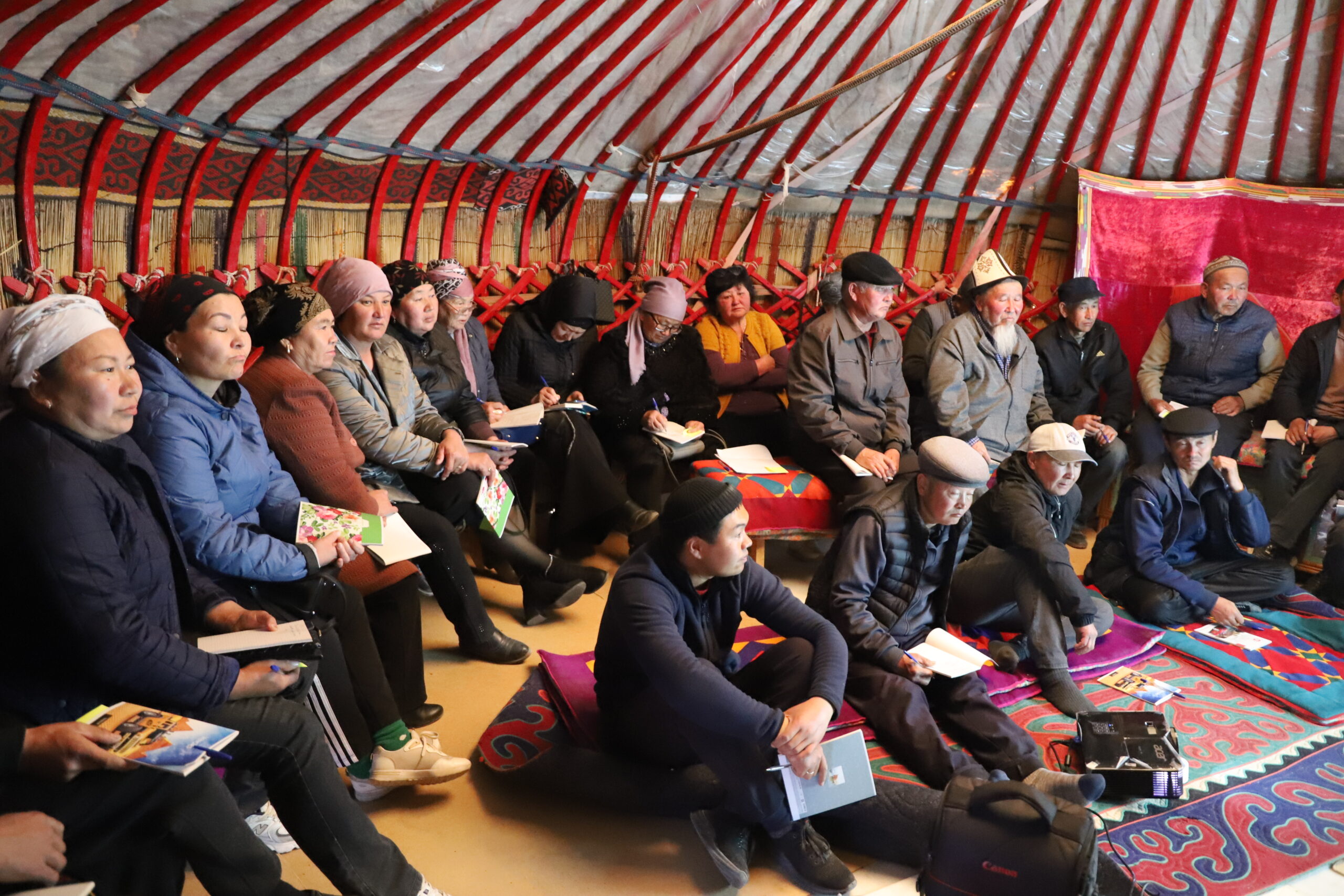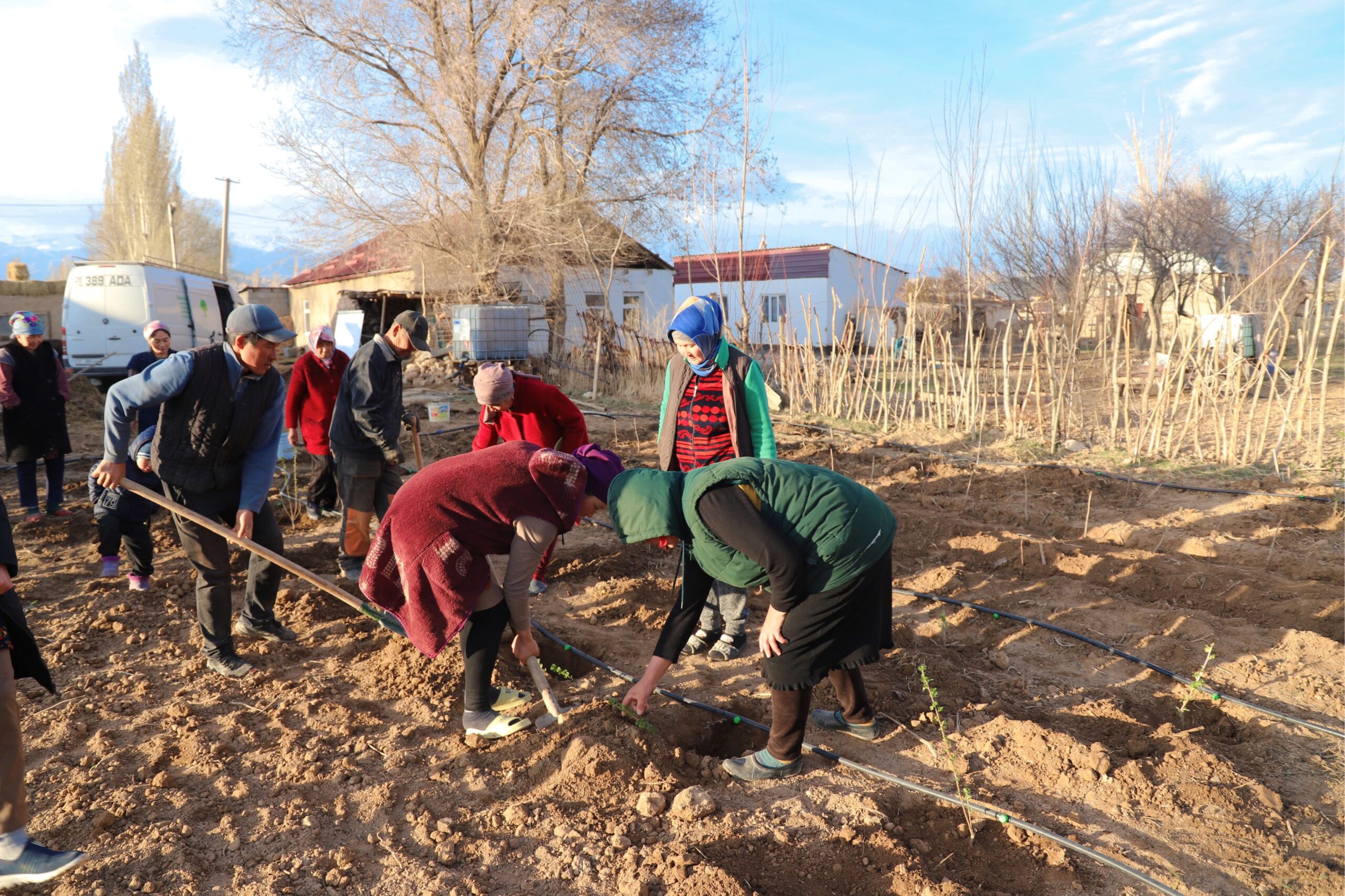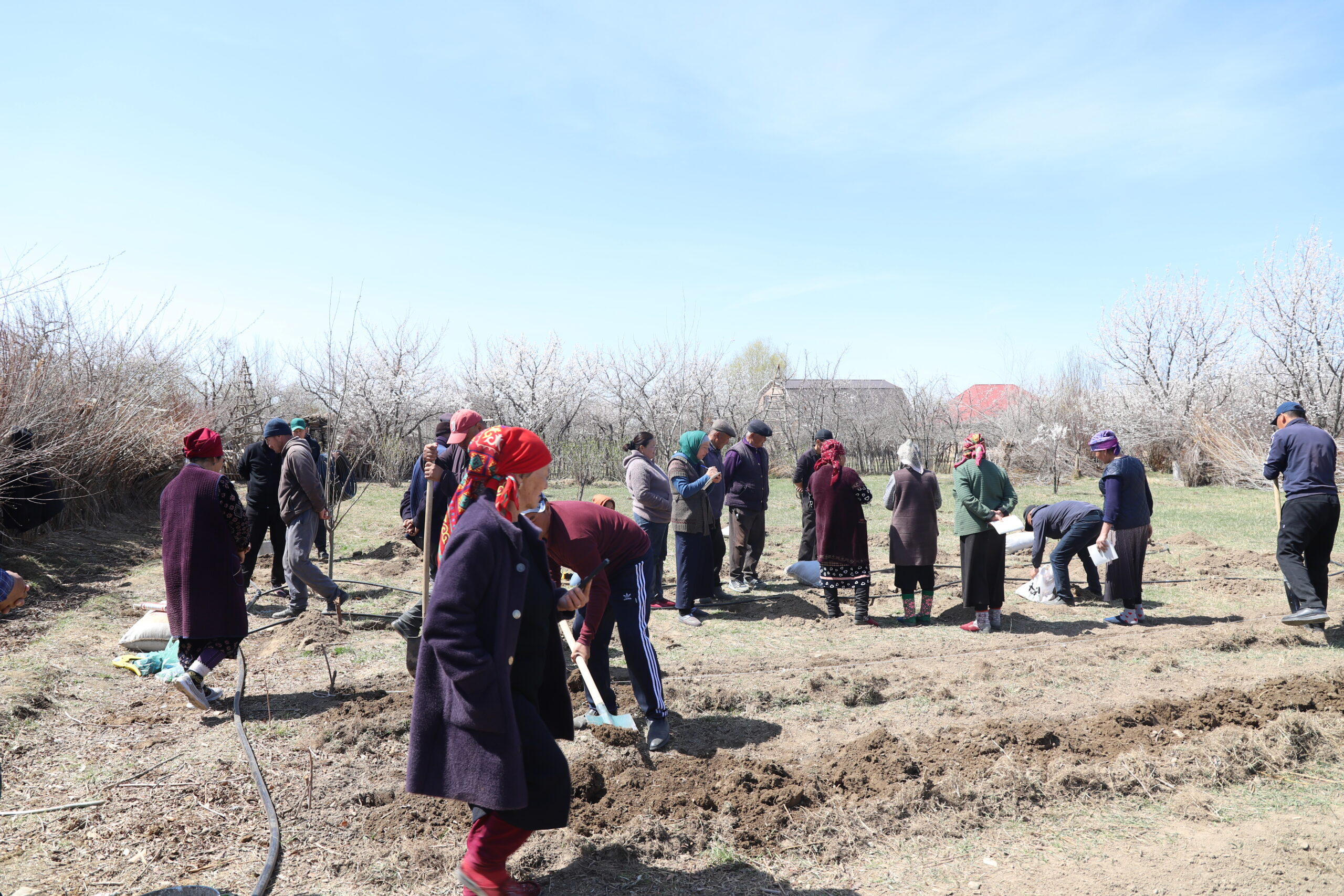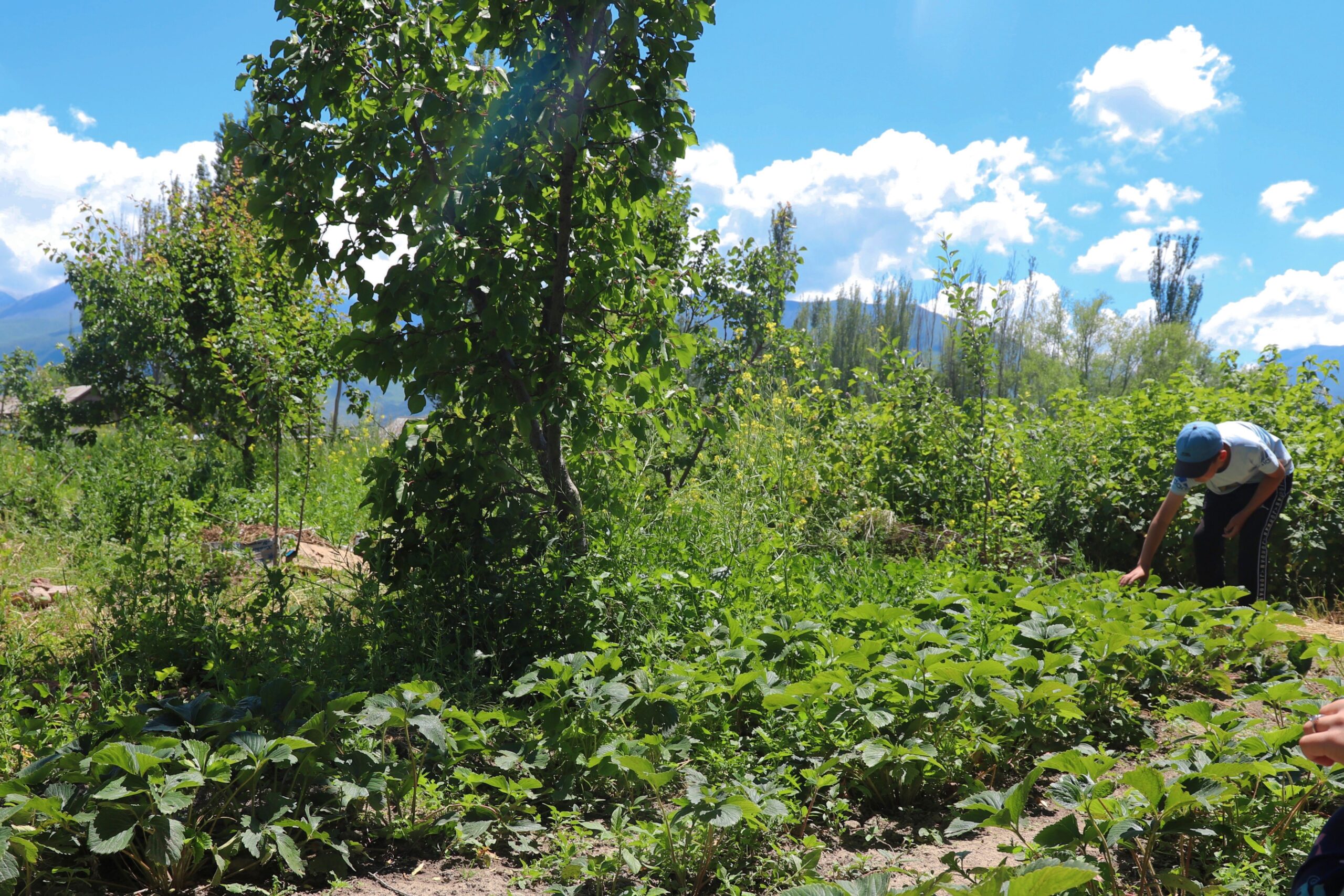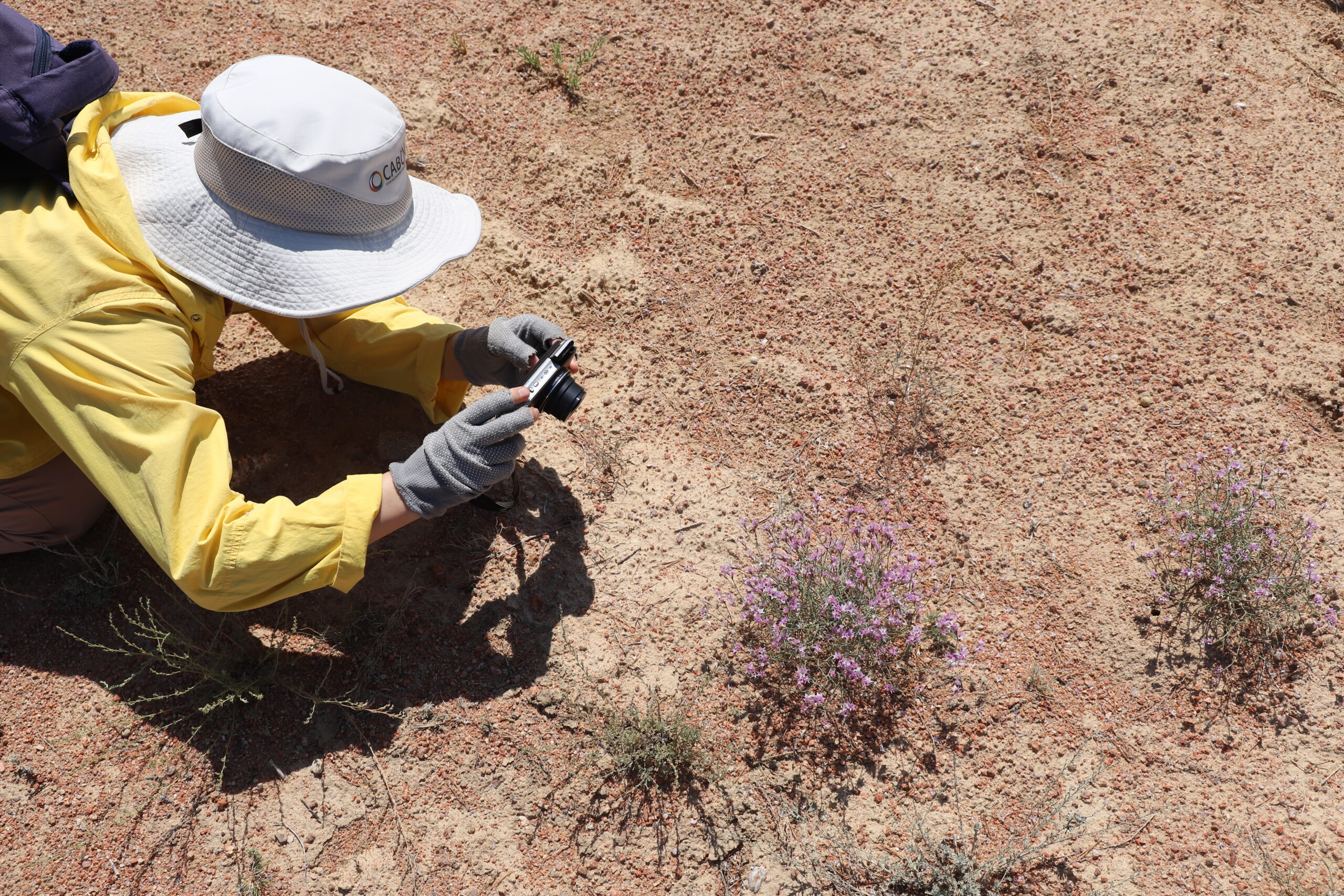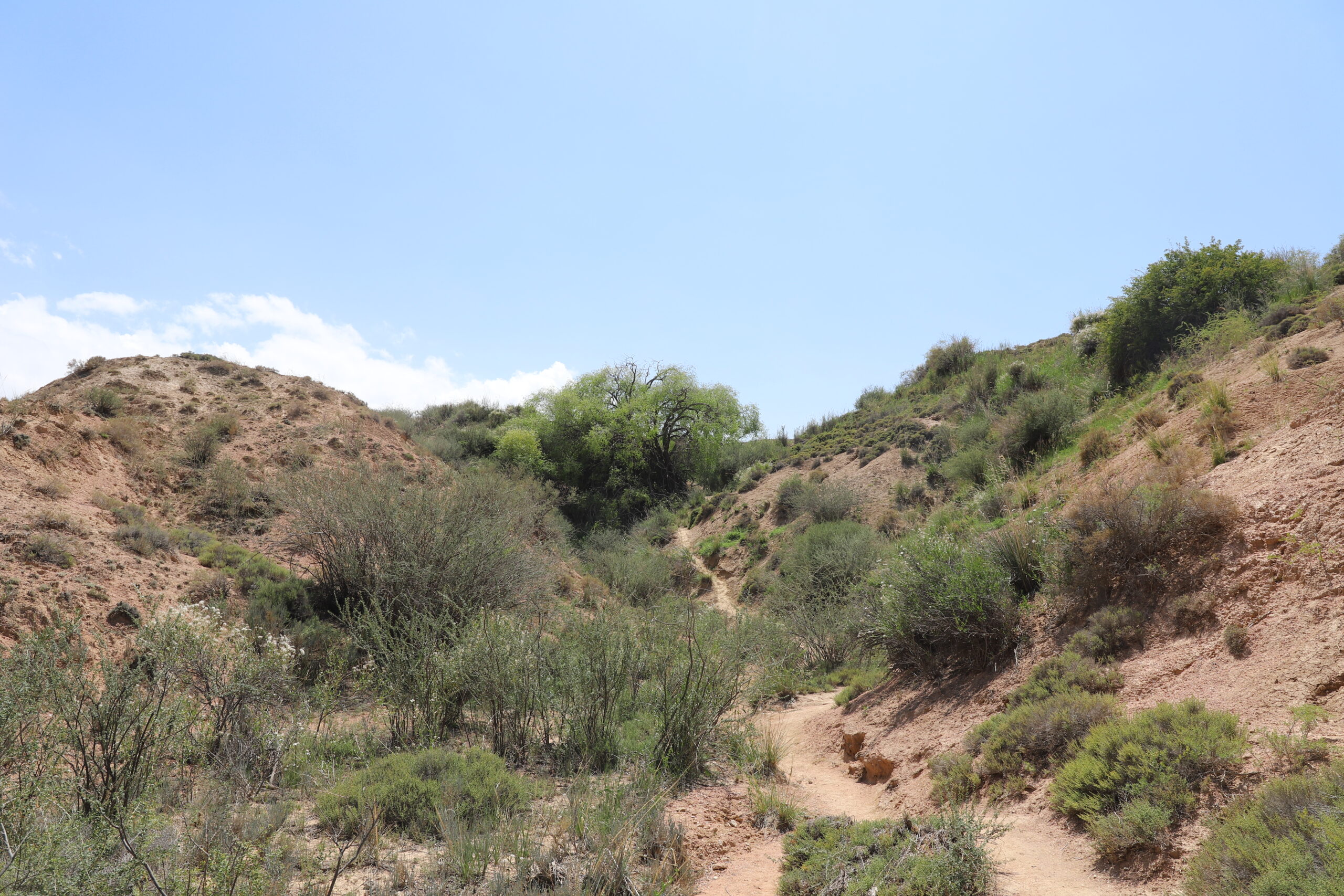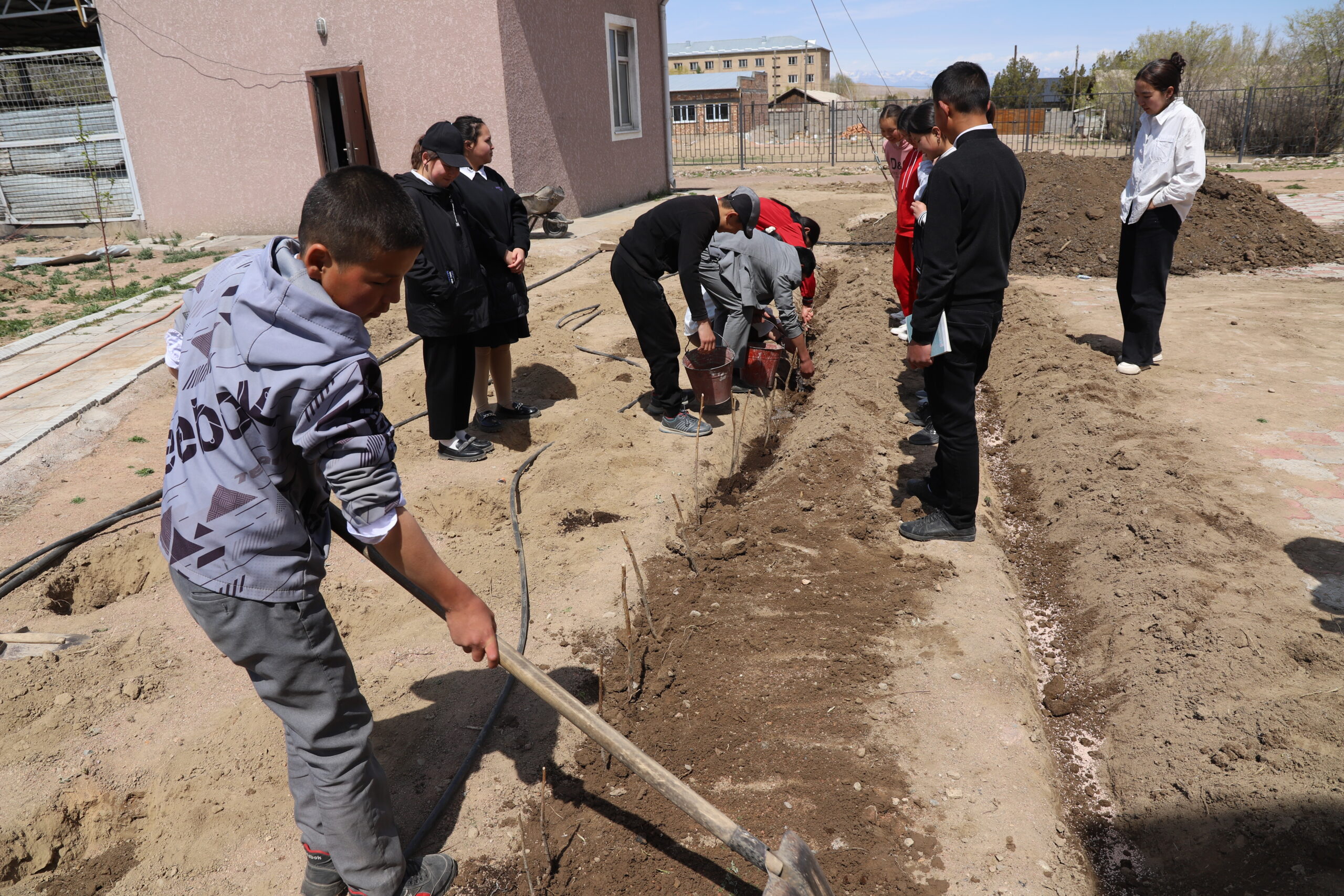In 2023, Centralasiengrupperna initiated a new format of cooperation with local partners in Central Asia, allowing for long-term support. Funded by SIDA via ForumCiv’s Large Partnership Funding program, the new collaboration format enables us to provide sustainable and lasting support to our partners, which marks an important step in CAG’s ongoing progress from project-oriented work towards long-term partnerships. This blog post is dedicated to our partnership with the local organization El-Too.
Since 2021, we have been working with El-Too in 14 villages vulnerable to climate change in North Kyrgyzstan to promote permaculture principles. Over the last two years, the project has successfully integrated the permaculture kitchen garden model in these communities, helping to address several issues, including adaptation of farmers to climate change, promotion of youth employment, identifying new sources of income for families, advocating for land rights, establishing sustainable livelihoods, food sovereignty and diversified diets in isolated, remote semi-desert, and mountainous villages.
This year, our renewed framework of cooperation allowed us to establish long-term goals for our partnership. In addition to the above-mentioned focus areas, we will focus more on innovative solutions for climate change adaptation, preventing ecological problems, ecorestoration, and combatting biodiversity loss.
We expanded our activity components and complemented our traditional training events with innovative approaches to address the lack of irrigation water in the region. Specifically, we have planned building a gabion-style dam to capture flood water in a semi-desert area, integrating wild semi-desert plants into permaculture and garden decoration, conducting soil-building activities through a traditional form of volunteering (ashar), and developing a school permaculture garden.
Since the beginning of this year, we have successfully conducted 3 rounds of training in our 9 project locations, focused on growing various species of berries, such as raspberry, blackcurrant, wild barberry, rosehip, sea-buckthorn, strawberry, and others. During these trainings, farmers learnt about applying permaculture principles in growing berries and fruit trees. The topics covered included fruit tree guilds, companionship planting with kitchen herbs, the importance of crop diversity, garden design, soil improvement techniques, berry variety selection, and integrated pests and disease management using permaculture principles.
Participants are learning about permaculture principles in a yurt, Manjyly location, Issyk-Kul oblast
Planting berries, Ak-Zhar village
The training has proven to be useful and in-demand among our participants. Given the increasing influence of climate change, the farmers have been having doubts about which crops to grow. For instance, semi-desert villages along the lakeshore have experienced the loss of their apricot harvest for two consecutive years. Last year, due to warm weather, all the apricots in the region ripened simultaneously, leading to an oversupply and no demand for apricots. As a result, farmers had to throw away their harvest. This year, due to temperature fluctuations, including warm March and April followed by frosts in May, all apricots in the region were frozen, resulting in no expected harvest.
In such conditions, our participants find it particularly relevant to learn how to grow berries that are frost resistant and provide diversity compared to monoculture crops. In addition, berries offer a good income source for small-scale farmers and increase opportunities for export, as they can be dried and transported to other markets, including EU markets, which is crucial for the land-locked country. By growing berries, farmers can reduce their dependence on neighboring countries and Russia, which has an unstable economic cooperation policy with Kyrgyzstan.
Residents of Kara-Shaar village are keen to learn on what alternative berries to grow, after losing their apricot harvest for 2 years
A family’s son is checking the newly planted strawberries, Ak-Zhar village, Naryn oblast
Using the rainwater for drip irrigation, Emgekchil village, Naryn oblast
One of our achievements from the past two years that demonstrates sustainability of our projects is that our farmers keep promoting permaculture kitchen gardens without our strong intervention. 70-80% of participants have continued to grow various vegetables. In Uchkun village, local residents established a farmer’s cooperative, which is currently actively engaged in growing various vegetables and experimenting with different varieties to provide fresh vegetables to the region. To learn more about the work of the cooperative, read the interview with its chairman via this link.
As part of the project, we worked alongside a biologists of the National Academy of Science to identify over 20 species of wild semi-desert plants that are most vulnerable to loss as a result of land clearing for tourism infrastructure (hotels, resorts, yurts), and farming. The aim is to conserve biodiversity. During the process, we assessed the soil-building qualities of the plants, their ability to prevent soil erosion and enrich the soil. We also identified their potential as companion plants alongside berries and other agricultural crops, as well as their decorative functions.
We plan to publish a small book that contains this information and distribute it among the residents of the target locations, CSO partners, tourism service providers, and duty bearers. Through the publication, we aim to encourage experimentation of growing these plants in soil enriching and soil building activities, and in decoration. We also intend to raise awareness among tourists, visitors, and landowners about the appropriate use of these plants.
Our biologist Nazgul Kenzhebaeva is studying semi-desert plants for using in permaculture
The landscape where the semi-desert plants grow
Our permaculture garden at a school, aimed at promoting food security and a diverse diet for the schoolchildren, received support from the district school department and evoked interest from other schools in the region. Currently, we have divided the garden into 3 zones: berries and fruits, vegetables and decorative areas. We also introduced a novel addition to the garden in collaboration with the biologist – a small rock garden featuring wild plants. The schoolchildren enthusiastically participated in this project, as it allowed them to contribute to the improvement of their school territory and learn about the plants and local ecological issues. Our plan for the next year is to offer the establishment of rock gardens and tourist destinations and promote growing and preserving wild plants on their territory.
School students participate in planting berry trees in their school garden, Bokonbaevo village, Issyk-Kul oblast
This year, we have a strong focus on information work. Based on research on the media habits of the Kyrgyzstan audience, El-Too has decided to utilize Instagram and Tik-Tok as the main platforms to share information about the project. On these platforms, El-Too is sharing recommendations and valuable advice on applying permaculture principles from the project participants and agronomists. According to the latest statistics, El-Too reached up to 30,000 people, and they are working on their media strategy and creating engaging content to reach a wider audience.
Additionally, a small grants support program was launched as part of the project. We have received several community ideas/initiatives that will be supported by the project’s small grant program. The initiatives were diverse, and most importantly, they all incorporated a permaculture component. Now, the finalization stage of evaluation is underway. After the final selections are made, the chosen finalists will be able to implement their ideas.
At the moment, our gabion-style dam project is in progress. In collaboration with the specialists from the Ministry of Emergency, we have developed the dam scheme, started excavation work, and we are now actively transitioning into the construction process. We anticipate completing the construction of our small dam by the end of August. We hope that this innovative approach will greatly benefit communities in semi-desert areas by providing them with additional sources of water. Moreover, it will help them view natural hazards, such as floods, not as negative occurrences but rather as new opportunities to cooperate with nature.
In August, we plan to conduct exchange visits between our target communities, allowing them to visit each other and share their experiences, not only within the project but also beyond its scope. For instance, the Naryn people are interested in learning about the knowledge of Issyk-Kul farmers on growing fruit trees, berries, and medicinal herbs. Additionally, they will visit successful farmers in the region who specialize in berry-growing for gaining practical knowledge and understanding how these farmers succeed despite the challenges posed by the region’s harsh climate.
El-Too adheres to the idea that permaculture is not just about teaching, it is about mutual learning. Therefore, they actively encourage their participants to share knowledge, experiences, and practice. The most relevant and suitable insights obtained from this exchange are then incorporated into the project’s implementation. This year, El-Too extended this approach to their social media pages, where they seek out farmers’ practices that align most closely with permaculture principles.
You can find out more about El-Too’s work on their Instagram: @eltoo_kyrgyzstan
Learn about our previous projects with El-Too by following this link.
Read more about how you can support our work in Central Asia here.

